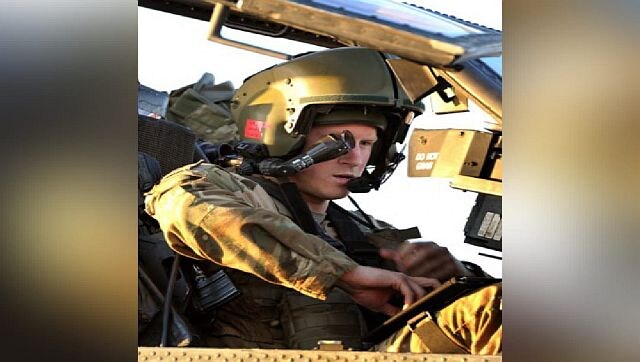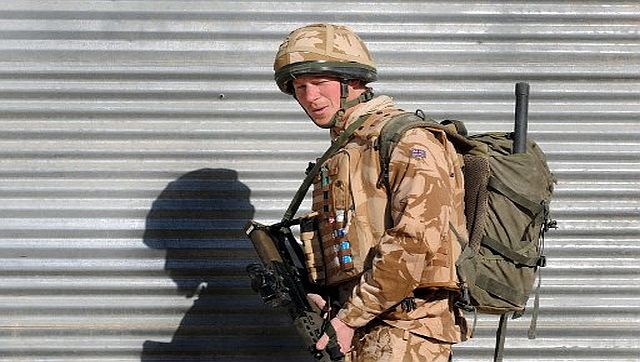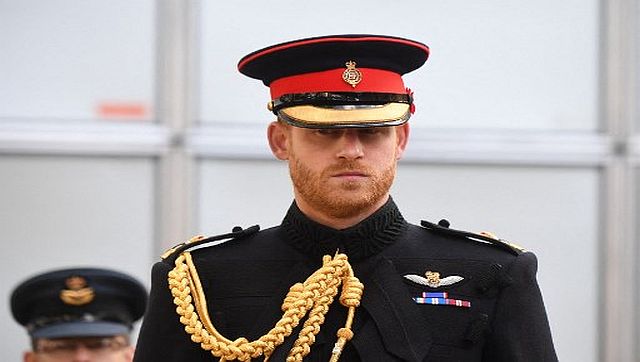
[ad_1]

In his memoir Spare, Prince Harry discusses his time within the army and how many individuals he killed within the Afghanistan battle, in addition to his psychological outlook on these deaths. File picture/AFP
The previous few weeks have seen a gentle stream of reports associated to the brand new memoir written by Prince Harry, titled Spare. While a lot of the media consideration has targeted on his relationship with King Charles; Prince William; Catherine, Princess of Wales; and Camilla, the queen consort, it’s his admission to killing 25 members of the Taliban during his tour of Afghanistan that has are available for criticism from some royal commentators.
In an “era of Apaches and laptops,” Harry stated he was capable of say “with exactness” what number of he had killed. “It appeared to me important to not be afraid of that quantity. So, my quantity is 25.
It’s not a quantity that fills me with satisfaction, however nor does it embarrass me.” Prince Harry additionally mentioned his psychological mindset concerning these deaths, and how he was “programmed” to deal with them.
Additionally, he stated that he noticed them as chess items in “the heat and fog of combat,” and not “as people.” He acknowledged that he was educated to “other-ise,” and that whereas he recognised that as problematic, he “saw it as an unavoidable part of soldiering.”
Although it might have been meant as an sincere appraisal of his personal experiences in battle, analysis exhibits that Harry’s phrases can not convey how others in related conditions replicate on having killed in battle.
Moreover, some have criticised the admission for sounding like counting “notches on a rifle butt.” Harry, nonetheless, has accused the media of taking his phrases out of context.
Appearing on The Late Show with Stephen Colbert, he stated, “I think one of the most dangerous lies that they have told is that I somehow boasted about the number of people I have killed in Afghanistan.”

Britain’s Prince Harry patrolling by way of the abandoned city of Garmisir in Helmand province in Southern Afghanistan. File picture/AFP
Outside the worldwide penalties of his phrases, what’s extra regarding is that Prince Harry tasks a certainty that’s not usually afforded those that make decisions within the “heat and fog” of combat.
War will not be a chess recreation
War includes working in a hybrid surroundings towards an adaptive enemy that always operates in and round an area civilian inhabitants. Chess is a recreation that includes two sides, by which all strikes are predefined, and all the data about the items on the board is thought and seen.
For a 2019 ebook titled Conflict: How Soldiers Make Impossible Decisions, Laurence Alison, Joseph Moran and I interviewed troopers about the decisions that they made during their excursions in Afghanistan.
What we discovered was that army decision-making is a hardly ever so simple as “bads” and “goods,” as Harry writes, or just being programmed to take away folks like chess items.
This analysis is supported by a bunch of different research we’ve accomplished on high-stakes decision-making with emergency responders that paints a much more complicated image of the cognitive course of and the talents required for folks to make decisions amid uncertainty.
Our research of professional decision-makers emphasise that good decision-making is an adaptive talent that requires the people to have the ability to deal with complexity, juggle competing values, deal with time stress and know when to behave. They additionally must ask the fitting questions and, certainly, to know when to desert a plan of action and search to do one thing new.
To current high-stakes army decisions as a two-sided recreation of chess creates a misunderstanding of certainty that few troopers are afforded when making decisions.
An additional difficulty is the narrative of “learned detachment.” This concept minimises the very actual psychological hurt that troopers face when making difficult ethical decisions at battle.
While the prices of post-traumatic stress dysfunction in those that have served in battle are extensively identified, psychologists are focusing particularly on the types of trauma which can be attributable to having to make tough, morally laden decisions below situations of uncertainty.

Britain’s Prince Harry, Duke of Sussex, bows his head earlier than laying a Cross of Remembrance in entrance of wood crosses from the Graves of Unknown British Soldiers from the First and Second World Wars, during his go to to the Field of Remembrance at Westminster Abbey in central London. File picture/AFP
Most notably, troopers can endure ethical damage. Moral damage is outlined by Brett Litz, a famend professional on PTSD, as the results of a state of affairs by which somebody perpetrates or fails to forestall an act that transgresses a deeply held ethical perception.
Such damage is very possible when a person navigates decisions involving sacred or protected values, resembling the necessity to defend life, which usually emerge amid army battle.
The prices of battle
Wars carry a big human price. I labored with the journal Science to analyse the civilian casualty knowledge from Afghanistan between 2009 and 2013. In my analysis I discovered that in 2013 alone, the International Security Assistance Force, a multinational army mission, recorded that no less than 1,685 Afghan civilians had been killed and some 3,554 wounded.
It was the best variety of civilian casualties since rigorous counting started in 2008. The complete variety of civilians killed from 2001 to 2021 is estimated to be over 46,000.
Furthermore, our evaluation confirmed that whilst civilian casualties decreased total, casualties attributable to air energy, resembling Apache helicopters, remained excessive.
Prince Harry’s phrases can, I consider, gasoline perceptions of a army insensitive to the human penalties of their actions and present a failure to respect the worth of human life.
Furthermore, presenting decisions of killing with such psychological and ethical certainty does little to assist present or future troopers put together themselves psychologically for the realities of battle.![]()
This article is republished from The Conversation below a Creative Commons license. Read the unique article.
Read all of the Latest News, Trending News, Cricket News, Bollywood News,
India News and Entertainment News right here. Follow us on Facebook, Twitter and Instagram.
[ad_2]
Source hyperlink